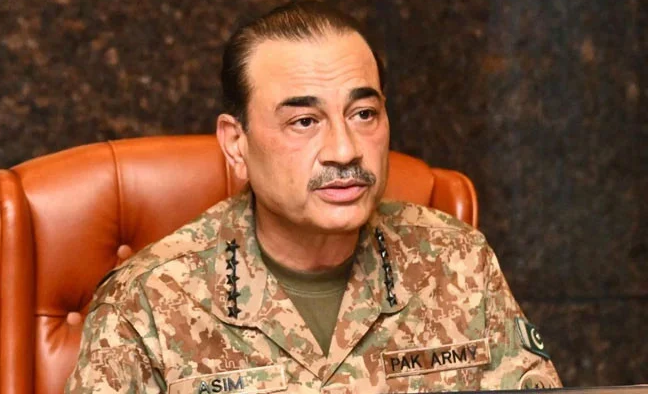Pakistan’s military leadership has strongly pushed back against circulating claims that Chief of Army Staff (COAS) Field Marshal Syed Asim Munir harbors presidential ambitions, labeling the rumors baseless and misleading.
In an interview with The Economist, Lt Gen Ahmed Sharif Chaudhry, spokesperson for Inter-Services Public Relations (ISPR), flatly rejected the notion that Field Marshal Munir seeks to replace President Asif Ali Zardari, calling the reports “nonsense.” His remarks serve as a clear rebuttal to persistent speculation on social media and certain media outlets regarding an alleged power shift within the country’s top leadership.
This isn’t the first time the issue has been addressed. In July, Prime Minister Shehbaz Sharif categorically denied any such possibility, stressing that there had been “no discussion, nor any intention” involving Munir in a presidential role. Speaking to The News, the prime minister emphasized that his working relationship with both President Zardari and COAS Munir is anchored in mutual respect and a shared commitment to national development.
Interior Minister Mohsin Naqvi, a key figure with close ties to the military, also weighed in via a post on X (formerly Twitter), calling the reports a “malicious campaign” aimed at destabilizing the country’s political landscape. “We know exactly who is behind this narrative,” Naqvi warned, reaffirming that the president’s resignation and any aspirations by the army chief to enter politics were not even under consideration.
Pakistan Issues Stern Warning to India Amid Tense Backdrop
Alongside putting political rumors to rest, the ISPR chief delivered a blunt warning to neighboring India, cautioning that any future aggression would be met with decisive retaliation.
“If there’s a next time, we’ll start from the east,” said Lt Gen Chaudhry, a clear reference to striking deeper into Indian territory in the event of conflict. “India must understand — it can be hit anywhere,” he added.
His remarks come just months after a brief but intense military clash between the two nuclear-armed nations earlier this year. Tensions erupted following an April attack in Indian Illegally Occupied Jammu and Kashmir (IIOJK), which New Delhi blamed on Islamabad. In response, Pakistan launched a broad retaliatory campaign codenamed Operation Bunyan-um-Marsoos.
That operation saw Pakistan down six Indian jets — including three advanced Rafales — and shoot down multiple drones. The confrontation, which lasted nearly four days, concluded on May 10 after a US-brokered ceasefire was announced.
While former US President Donald Trump claimed credit for ending the conflict, saying Washington threatened to freeze trade talks unless both sides stood down, India has publicly disagreed with his version of events. Pakistan, however, formally acknowledged Trump’s diplomatic role and even recommended him for the 2026 Nobel Peace Prize for his intervention.
Political Unity and Military Posture
As Pakistan navigates both internal political chatter and external threats, officials appear intent on signaling unity at the top and strength in posture. The coordinated denials from the prime minister, interior minister, and the military suggest a concerted effort to quash any narrative of a power grab.
With regional tensions still simmering and international stakeholders watching closely, Pakistan’s message is clear: the military isn’t seeking political office — but it is ready to defend its borders without hesitation.


